How to Recreate the Classic Roland Juno Sound using Software Plug-ins
Softsynths for recreating the famous JUNO sound.
Some of the most widely used and distinctive sounding polyphonic synthesizers produced, the Roland Juno series is not too far away in architecture from its large and illustrious cousin, the Jupiter-8.
In this Article
What makes the Roland Juno synthesizers so special?
Although the oscillators are digitally controlled, the level of warmth, depth, and texture that can be produced with its limited set of controls and features is astonishing.
When combined with the classic arpeggiator, or the highly recognizable built-in Juno chorus effect, it isn’t hard to fathom why it still remains such a sought-after creative tool in modern music.
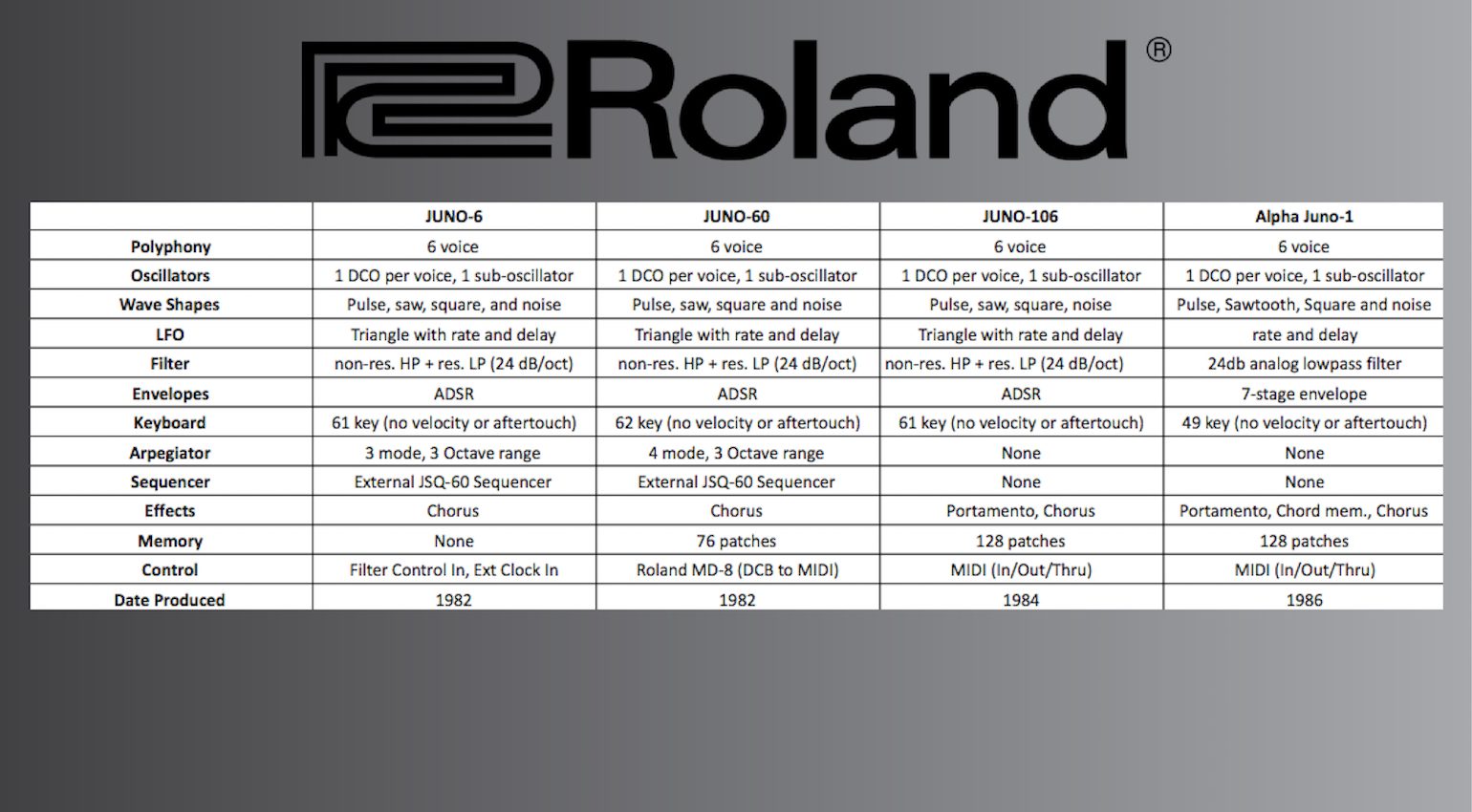
In this post, we’ll look at some of the best plugin emulations of the Juno and its famous chorus. We’ll also dig into the record bag and find some iconic examples where Junos were used to great effect.
Finally, we’ll cover some techniques you can use within your DAW to ensure you’re getting an accurate sound reminiscent of the original.
Which are the best Roland Juno plugins?
Each analogue plug-in emulation available takes a slightly different approach. Some recreate classic Juno sounds with a familiar interface, while others expand on the possibilities of the original.
Softube Model 84
The Model 84 brings the Juno-106 into your DAW in brilliantly authentic-sounding Softube style. Each aspect of the 106 has been carefully recreated, preserving the character of the envelopes and the famous chorus effect.
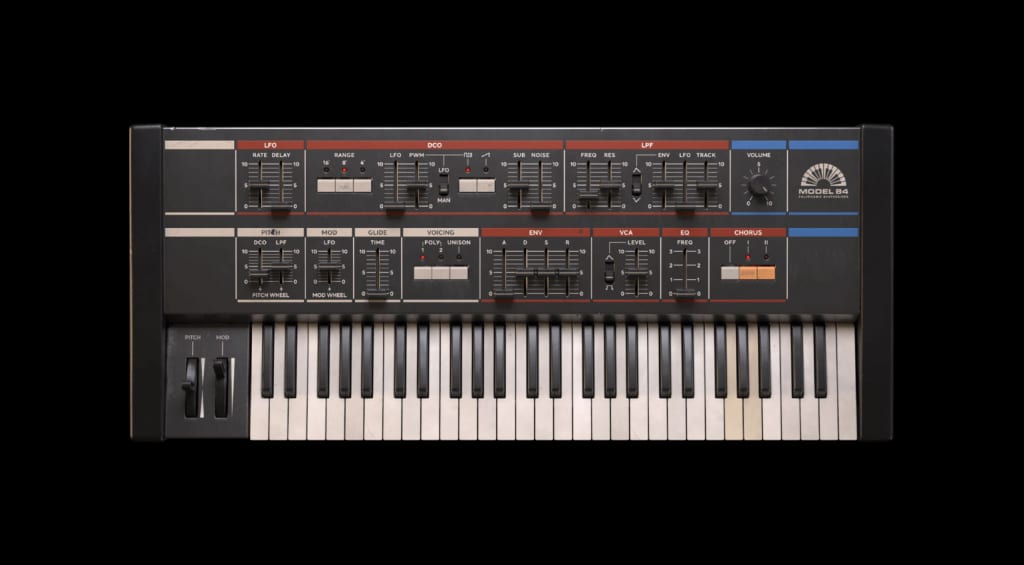
In addition, Softube has added a useful Unison effect, which is great for creating modern EDM and Pop sounds. Meanwhile, the EQ slider is also a nice touch, as you can enhance the tone to help sounds cut through dense mixes.
Overall, the Model 84 is equally useful to beginners and season synthesists, with all the right tools for sound creation and a great preset library with a free preset pack by Matt Johnson.
- More from Softube
Togu Audio Line U-NO-LX
We’ve mentioned TAL plugins before in this series – suffice it to say, I’m a fan. Apart from the raw sound produced, any plugin with an interface that keeps you away from the patch library is worth holding onto.
The TAL U-NO-LX is based on the Roland Juno-60, maintaining most of its core aspects like the oscillator and filter sections in particular.
Accurately modeling the Juno-60’s VCA envelope is more difficult, but the U-NO-LX still achieves a detailed sound that really shines when paired with the AudioEase Altiverb or another high-quality reverb.
- More about TAL
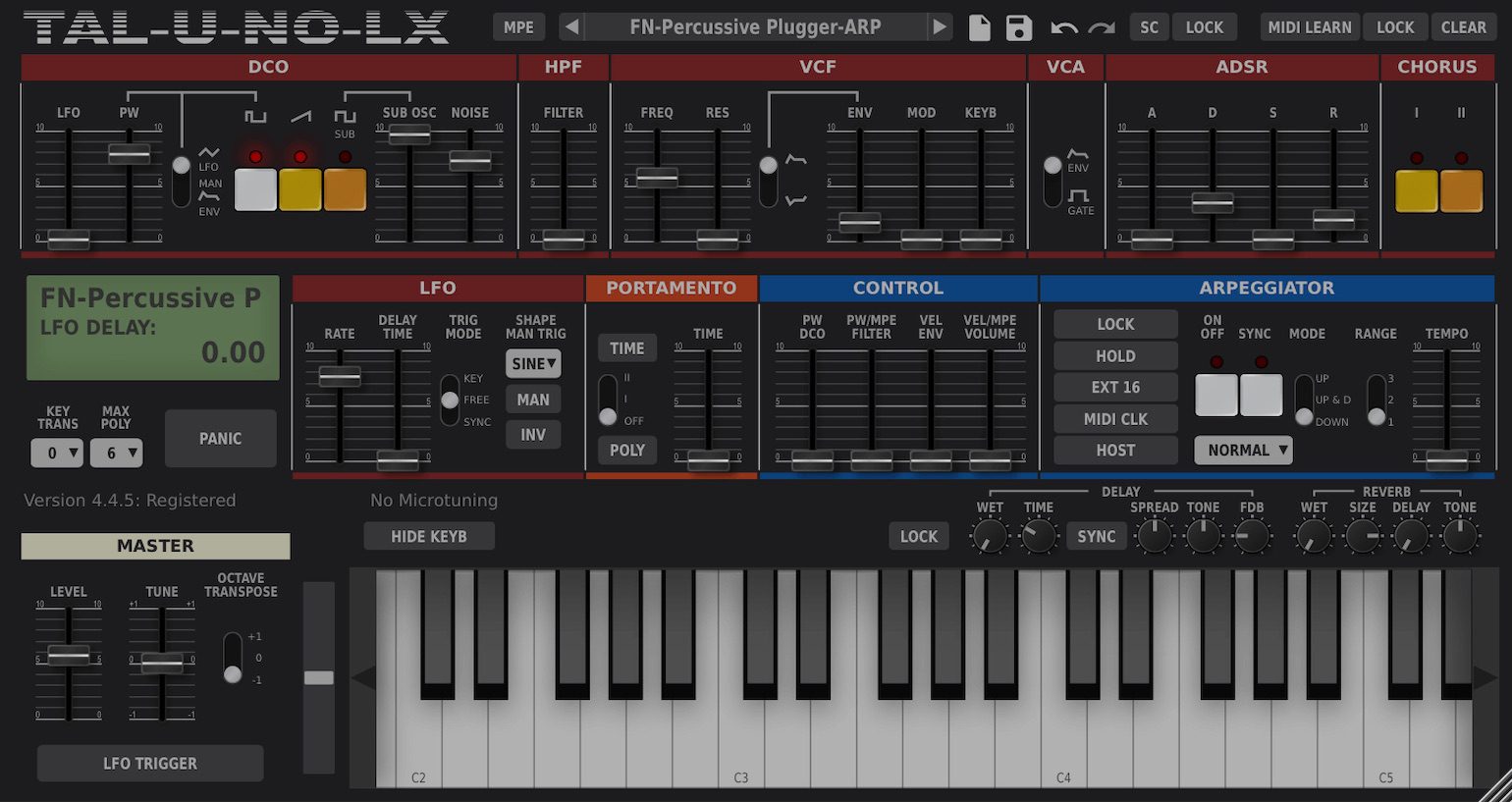
Arturia Jun-6 V
Arturia’s Jun-6 V is another convincing plugin emulation, based on the Roland Juno-6 architecture. The UI is laid out in an almost identical fashion to the original hardware, which makes it easy to navigate.
Overall the sound doesn’t have quite the same ‘knock’ that leaps out from your speakers as the TAL, but it is still a very rich sound nevertheless.
Smoother highs make the Jun-6 V perfect for creating the lush evolving pads that the Roland Juno is known for, and the added reverb and delay effects make it easy to create a full enough sound without reaching for more plugins.
- More about Arturia
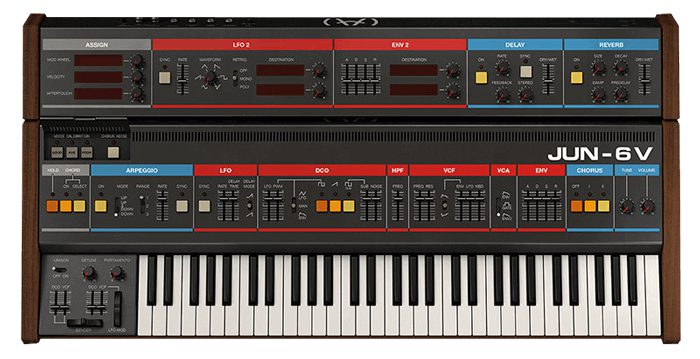
Roland Cloud Juno-60 & Juno-106
It goes without saying that the Roland Cloud plugins offer some of the best emulations of the Juno series available.
With an additional envelope and an expanded selection of effects, these software instruments capture the character of the original hardware versions and provide a few extra creative tools to work with.
In addition, these plugins are also fully compatible with the Roland System-8, which gives you complete tactile control of the plugins. The voice count of both the Juno-60 & Juno-106 plugins has also been increased to eight, giving you a slightly wider range to create chords.
- More about Roland

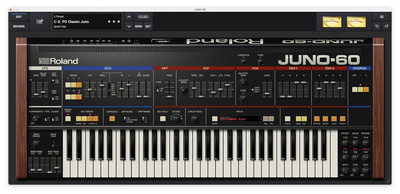

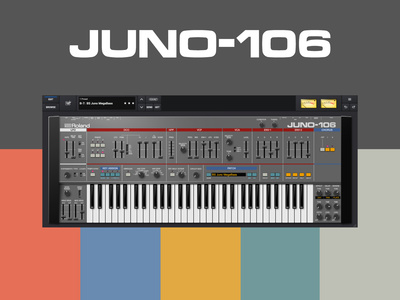
U-he Diva
While it is not exclusively a Juno emulation, U-he Diva is still a powerful and realistic-sounding softsynth. While the interface might not look exactly like a Juno, it’s possible to recreate every aspect of the sonic architecture in detail with Diva’s extensive features.
Up to 16 voice polyphony combined with the ability to stack voices, allows you to go beyond what was possible with the original hardware. Also, you have the option to mix and match your oscillator, filter, and envelope section models to create unique combinations.
While it has been around a while and has a high CPU load from real-time circuit simulation and ZDF, Diva is still an extremely complex and great-sounding vintage synth plugin.
- More about U-he

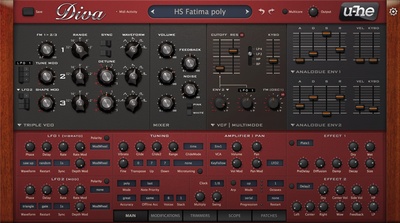
AudioRealism ReDominator
With some of the best plugin emulations in the business, it’s no surprise to find AudioRealism’s ReDominator on this list and many others too.
The attention to detail in the interface design makes it a pleasure to use. What’s more, its eight-parameter envelope generator gives you an extra degree of control when designing sounds.
Although the Alpha Juno became famous in the late 80s and early 90s for its Acid and Techno sounds, the Redominator is capable of so much more.
It can even load the original Alpha Juno patch banks if that’s what you’re after. However, the interface is simple enough to dive into from the init. patch and create your own sounds in minutes.
- More about AudioRealism
Some other great Juno emulations also include:
- Cherry Audio DCO-106
- Phuturetone Phutura

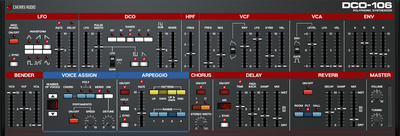
Using the Juno chorus
Both hardware and software versions of the Roland Juno chorus have become extremely popular for use on other instruments.
Plugins like the TAL-Chorus-LX and the Arturia Chorus Jun-6 can be used to give your native DAW softsynths an authentic Juno-like edge.
They can also be used on vocals, guitars, and effects return tracks such as reverb and delay to widen the stereo image and create more texture.
Be sure to filter your low frequencies accordingly when using chorus plugins in parallel. This way, you can ensure you’re actually adding depth to the sound rather than mud.

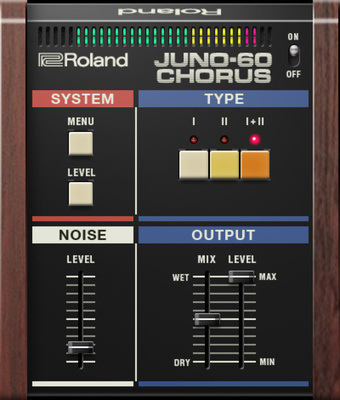
The Roland Juno synthesizers in popular music
The Roland Juno series can be heard on some of the most iconic songs in pop music history. From Madonna’s Chic produced Like A Virgin single from 1984, to the Eurythmics smash hit Sweet Dreams, or the internet’s all-time favourite Never Gonna Give You Up by Rick Astley.
The Juno offered artists access to rich, full soundscapes at a reasonable price. Meanwhile, other famous polysynths of the time, such as the Sequential Circuits Prophet 5, the Roland Jupiter-8, or the monstrous Yamaha CS-80 were very pricey.
The thick tonal sound and sharp envelopes make the Juno extremely diverse for almost any sound you can think of, especially pads, stabs, and basslines.
Apart from its use in electronic music, Junos are also widely used by Indie and Shoegaze musicians for the colourful character of their sound. Some other notable exponents include Vangelis, MGMT, Tame Impala, and Com Truise.
Recreating that classic Roland Juno sound
The first thing you’ll notice about using a Juno is its tendency to warp and warble around. Moreover, this occurs even when used in mono – and especially with the chorus active.
While these slightly unstable characteristics are synonymous with analogue circuitry, there are ways of reproducing this level of realism with software by using the right approach:
- Slightly detuning the oscillators can immediately create more authentic results
- Simpler pads and basslines are possible using the softsynths mentioned above
- Careful use of chorus and portamento can enhance the clinical character in the way plugins reproduce pitch
- The noise oscillator can also be a useful tool for softening the high frequencies for a more pleasing overall sound
- Becoming adept with the synthesis parameters and designing your own sounds will save you endless hours of patch-browsing
What are your favourite plug-in versions of the Roland Juno series synthesizers? Please let us know in the comments below!
More about Roland Juno Plugins:
- The History of Roland Synths
- Check out the new Behringer Juno clone
- Recreating the sound of the SH-101
- Everything Roland
- Recreating the 80s Linndrum sound
- Emu Emulator II upgrade
- Juno-106 presets for the Behringer Deepmind
- Everything vintage
Videos:
*Note: This article about Roland Juno Plugins contains promotional links that help us fund our site. Don’t worry: the price for you always stays the same! We will receive a small commission if you buy something through these links. We appreciate your support!
5 responses to “How to Recreate the Classic Roland Juno Sound using Software Plug-ins”

You are currently viewing a placeholder content from Facebook. To access the actual content, click the button below. Please note that doing so will share data with third-party providers.
More InformationYou are currently viewing a placeholder content from Instagram. To access the actual content, click the button below. Please note that doing so will share data with third-party providers.
More InformationYou are currently viewing a placeholder content from X. To access the actual content, click the button below. Please note that doing so will share data with third-party providers.
More Information
 3,6 / 5,0 |
3,6 / 5,0 | 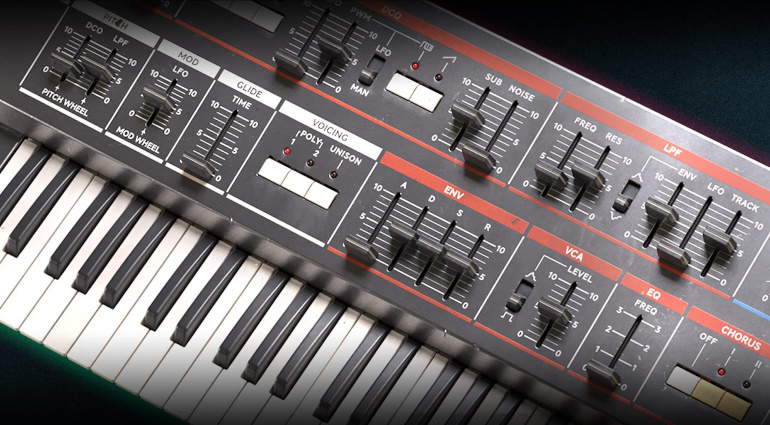

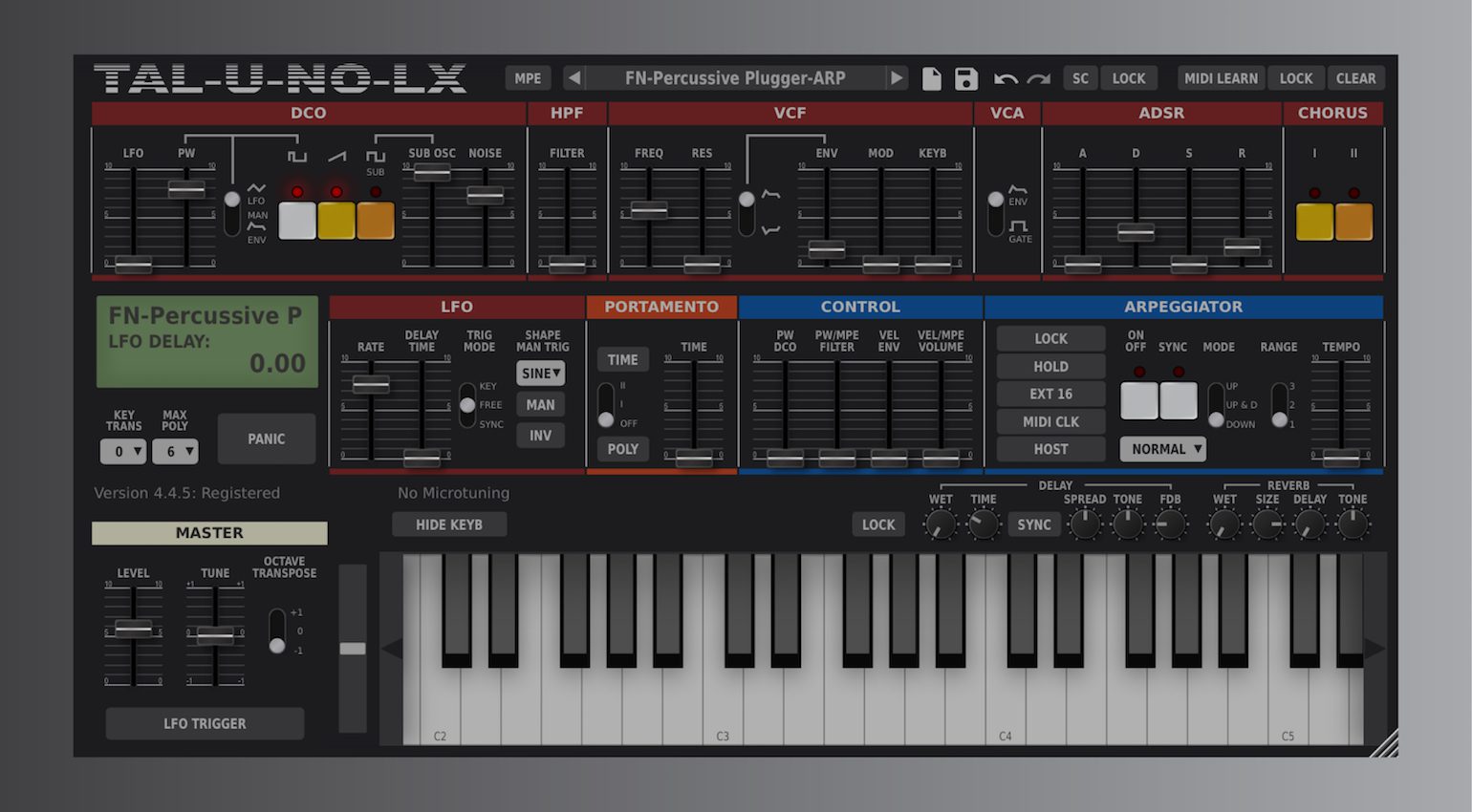

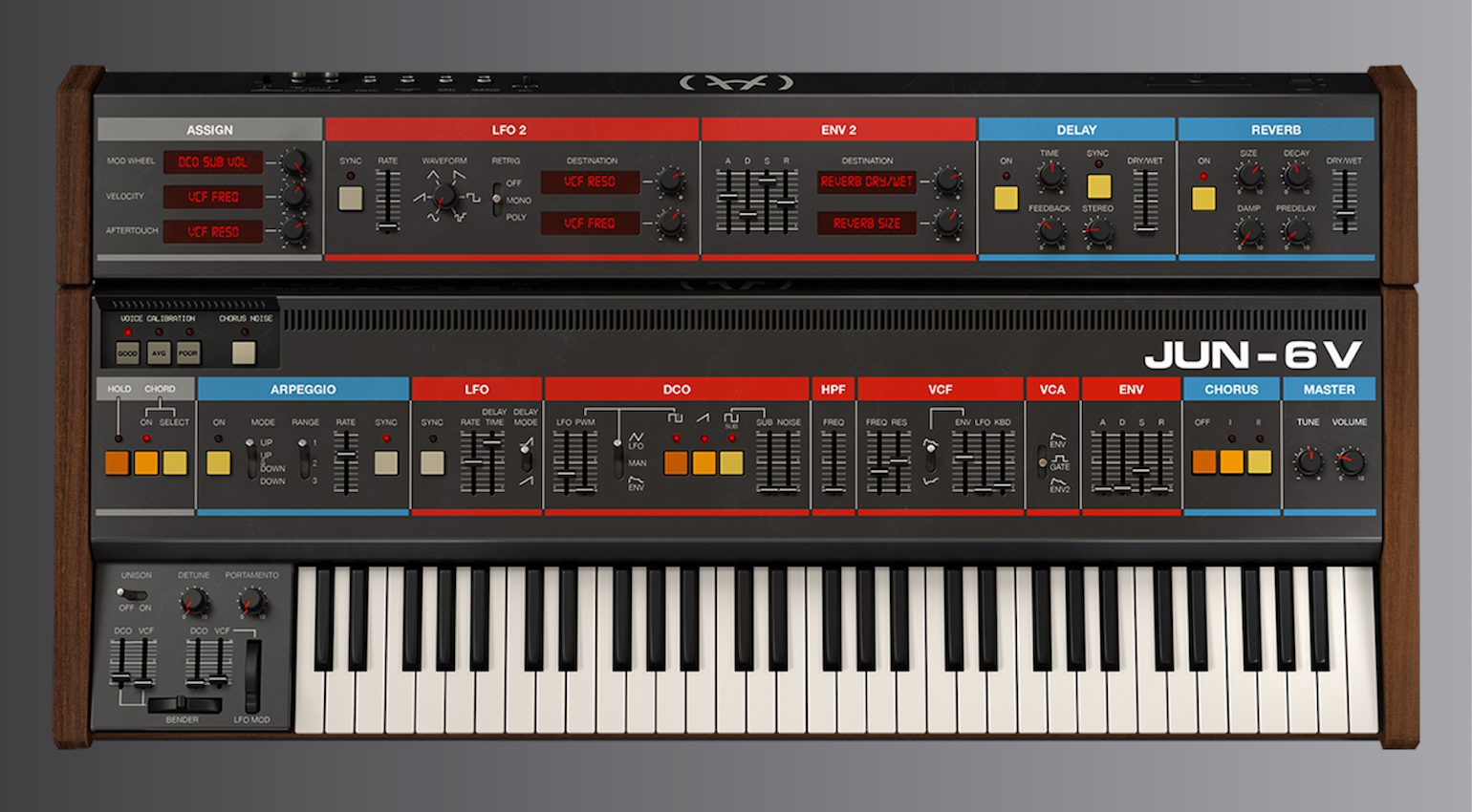
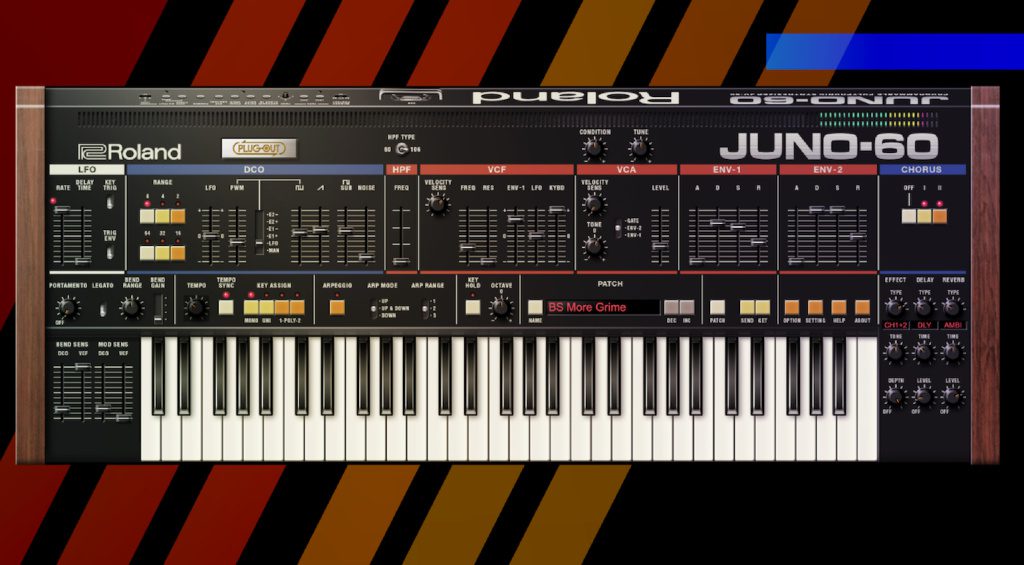
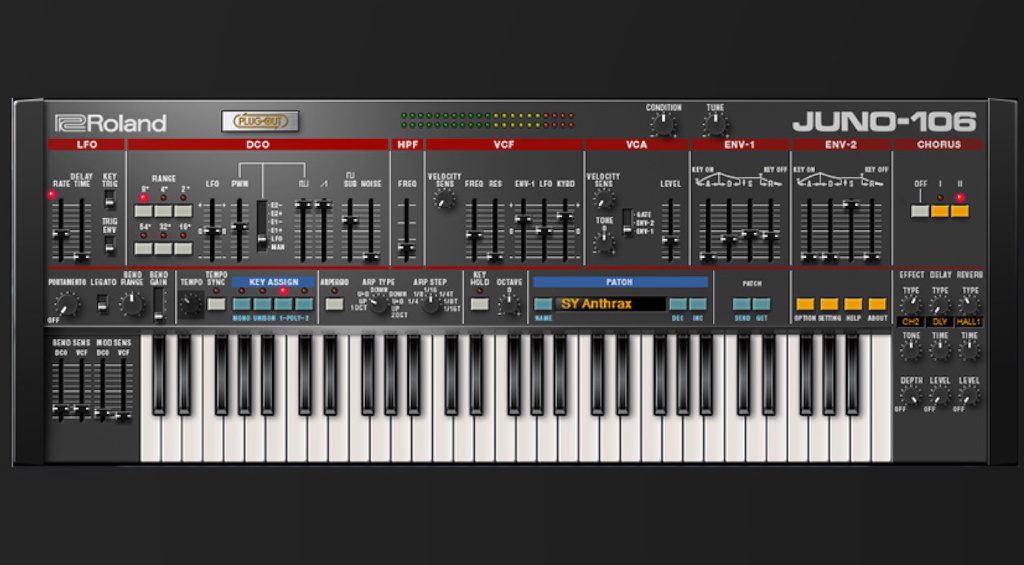

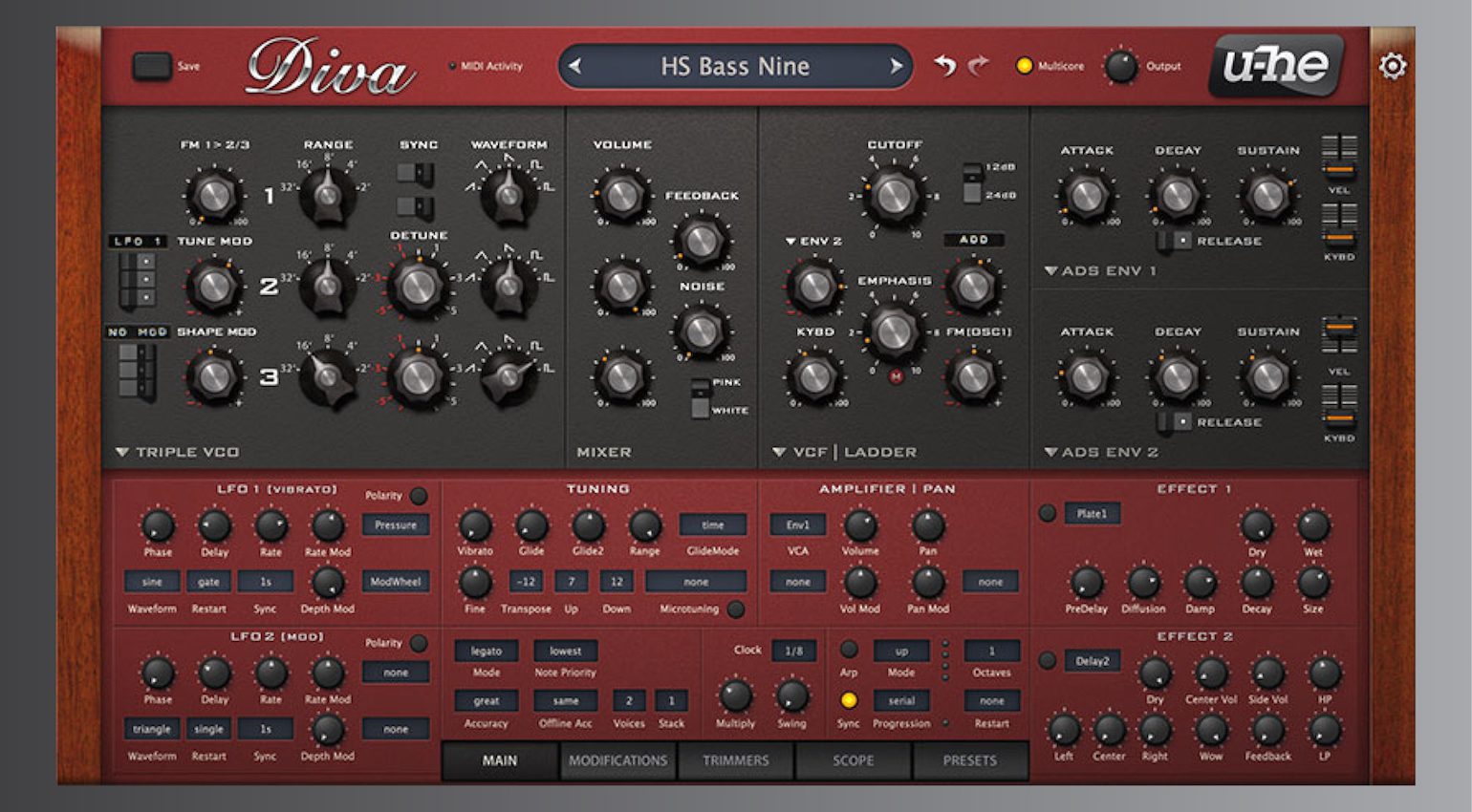
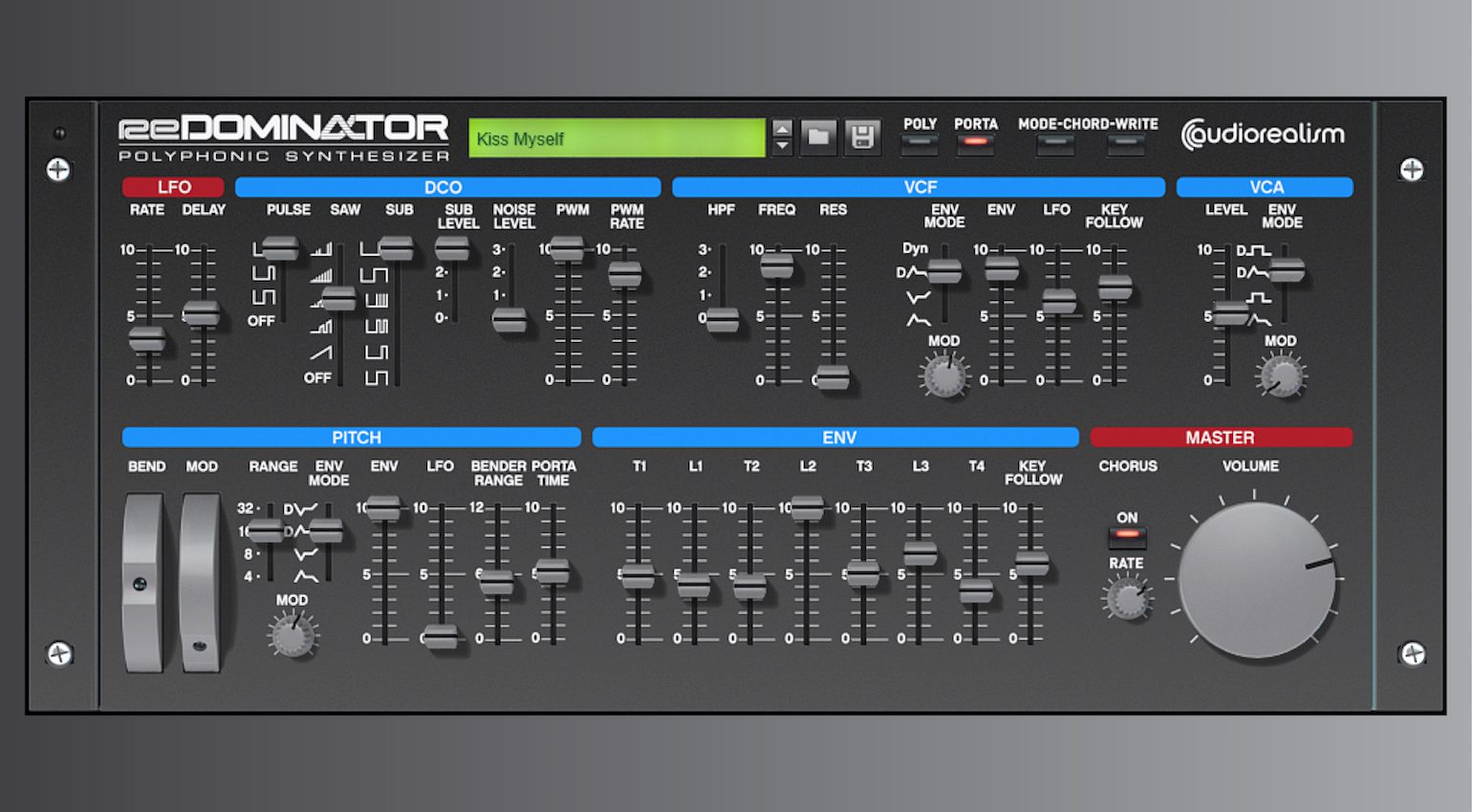
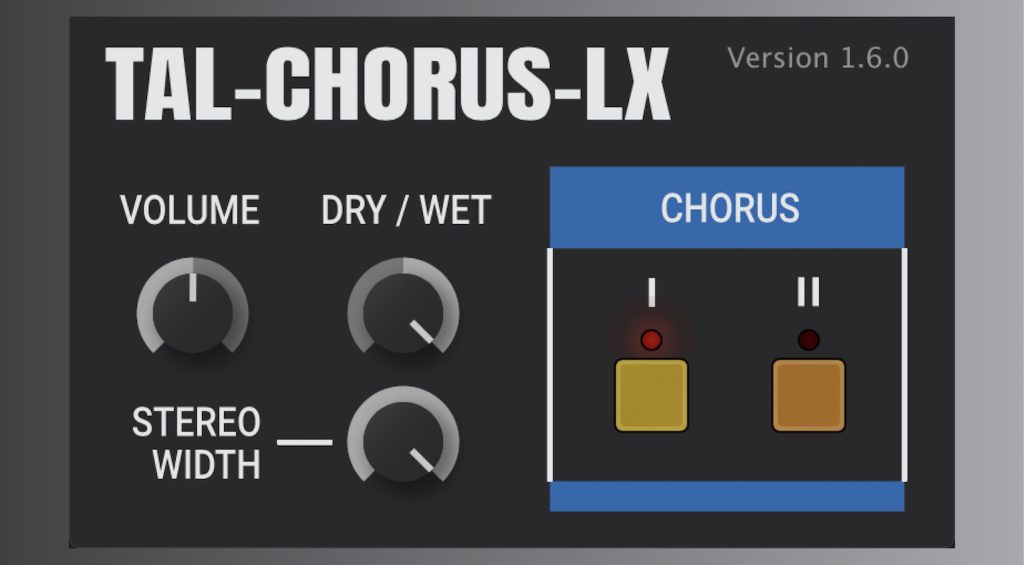
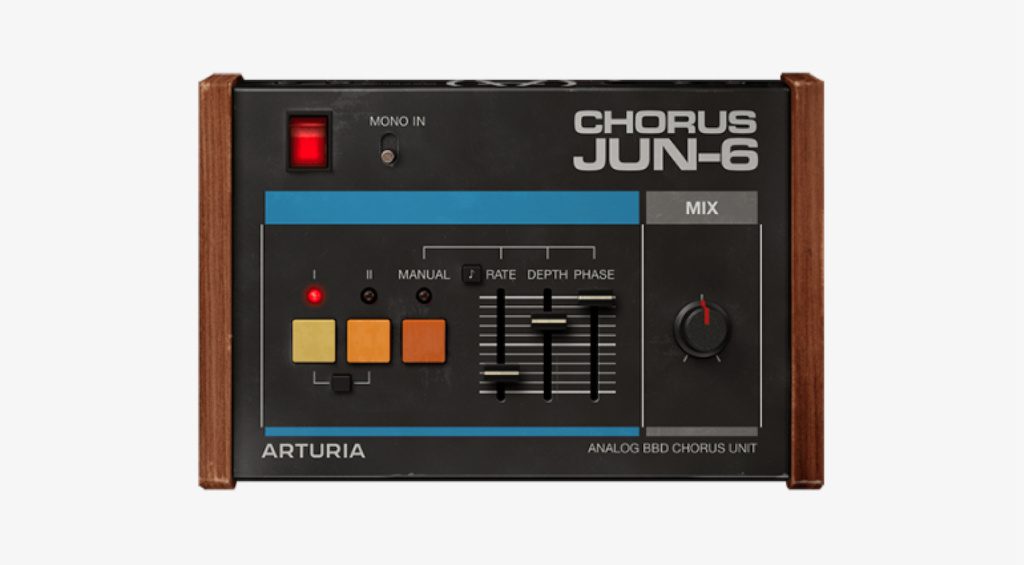
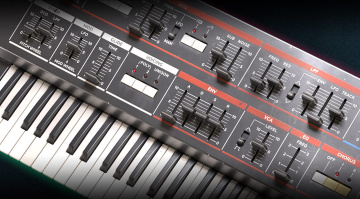

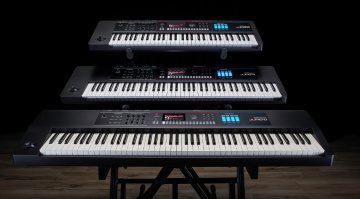
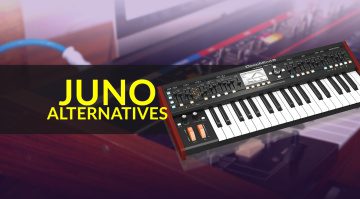
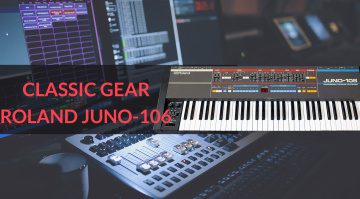
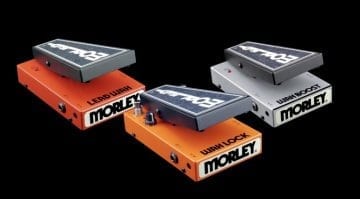
The Softube Model 84 plugin is worth checking out too
Great article! I love using the Cherry Audio version. It has something… liquid and fresh to the sound, immediately opens any track I put it in. The Dreadbox Nymphes is super awesome and despite being a little tougher and perhaps more in your face, it has the Juno/JX vibe in spades. Three other great overall synths more than capable of recreating the Juno “world” that I use all the time are:
SonicAcademy ANA2, now with added pitch drift control for every one of the three oscillators. U-HE HIVE is also phenomenally fat ifyou want it to be, lush, wide… Then my beloved Logic es2 (with small letters, as it was spelled originally, 😉) Incredible brass and padsounds, wavetables. It’s all there! Even today super lush!
Ok, one more! Because I wrote lush…
D16 group’s LuSH-101 is an amazing synth. Obviously doing the SH-101 thing but SO BIG and warm as a poly synth! Beautiful pads and sequences…!!! Wide horizons, that kinda thing…
The Tall plugin comes very, very close. I have an original Juno-6 and I copied the settings to the plugin to test, very difficult to hear a difference. Doesn’t work with every settings although. Behringer’s version better be as good as the original because Tall plugin is unbeatable as a software clone from the original.
The ES-1 and ES-P synths built into Apple Logic Pro (and defacto part of Garageband in simplified form) can replicate a lot of Juno sounds. They don’t look like a Juno, but the controls are similar.
The Juno is banned here. It’s against the law to use one. There were riots about it. The government refused to budge, and insisted that the Stylophone was to be the only synthetic instrument used. This is why there has never yet been a single good tune ever made in our land.
All the best,
from New Zealand